Today we’re bringing you a roundup of some of the great Science Fiction, Fantasy and Dystopian classics available on the web. And what better way to get started than with Aldous Huxley reading a dramatized recording of his 1932 novel, Brave New World. The reading aired on the CBS Radio Workshop in 1956. You can listen to Part 1 here and Part 2 here.
(FYI: You can download Huxley’s original work — as opposed to the dramatized version — in audio by signing up for a Free Trial with Audible.com, and that applies to other books mentioned here as well.)
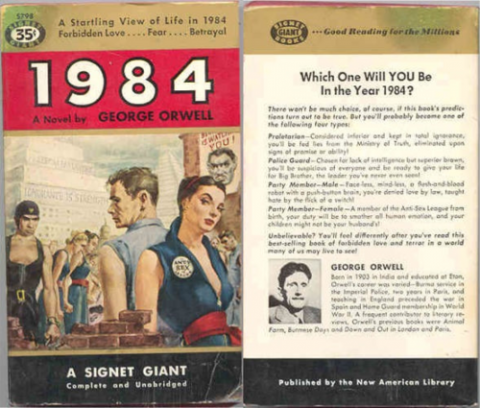
Little known fact. Aldous Huxley once gave George Orwell French lessons at Eton. And, 17 years after the release of Brave New World, Huxley’s pupil published 1984. The seminal dystopian work may be one of the most influential novels of the 20th century, and it’s almost certainly the most important political novel from that period. You can find it available on the web in three formats: Free eText — Free Audio Book – Free Movie.
In 1910, J. Searle Dawley wrote and directed Frankenstein. It took him three days to shoot the 12-minute film (when most films were actually shot in just one day). It marked the first time that Mary Shelley’s classic monster tale (text — audio) was ever adapted to film. And, somewhat notably, Thomas Edison had a hand (albeit it an indirect one) in making the film. The first Frankenstein film was shot at Edison Studios, the production company owned by the famous inventor.
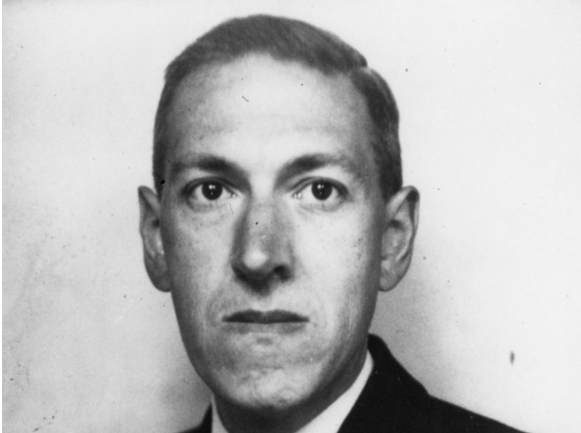
Stephen King and Joyce Carol Oates — they both pay homage to H.P. Lovecraft and his great tales. And you can too by spending time with his collected works, available in etext formats here and audio formats here (Free Mp3 Zip File – Free Stream).
Philip K. Dick published 44 novels and 121 stories during his short lifetime, solidifying his position as one of America’s top sci-fi writers. If you’re not intimately familiar with his novels, then you almost certainly know major films based on Dick’s work – Blade Runner, Total Recall, A Scanner Darkly and Minority Report. To get you acquainted with PKD’s writing, we have culled together 14 short stories for your enjoyment.
eTexts (find download instructions here)
- “Beyond the Door”
- “Beyond Lies the Wub”
- “Mr. Spaceship”
- “Piper in the Woods”
- “Second Variety”
- “The Crystal Crypt”
- “The Defenders”
- “The Eyes Have It”
- “The Gun”
- “The Hanging Stranger”
- “The Skull”
- “The Variable Man”
- “Tony and the Beetles”
- “We Can Remember It For You Wholesale”
- iPad/iPhone
Audio
- “Beyond Lies the Wub” – Free MP3
- “Beyond the Door” – Free MP3
- “Second Variety” – Free MP3 Zip File – Stream Online
- “The Defenders” — Free MP3
- “The Hanging Stranger” – Free MP3
- “The Variable Man” – Free MP3 Zip File – Stream Online
- “Tony and the Beetles” – MP3 Part 1 – MP3 Part II
Back in the late 1930s, Orson Welles launched The Mercury Theatre on the Air, a radio program dedicated to bringing dramatic, theatrical productions to the American airwaves. The show had a fairly short run, lasting from 1938 to 1941. But it made its mark. During these few years, The Mercury Theatre aired The War of the Worlds, an episode narrated by Welles that led many Americans to believe their country was under Martian attack. The legendary production, perhaps the most famous ever aired on American radio, was based on H.G. Wells’ early sci-fi novel, and you can listen to the broadcast right here.
Between 1951 and 1953, Isaac Asimov published three books that formed the now famous Foundation Trilogy. Many considered it a masterwork in science fiction, and that view became official doctrine in 1966 when the trilogy received a special Hugo Award for Best All-Time Series, notably beating out Tolkien’s The Lord of the Rings. Eventually, the BBC decided to adapt Asimov’s trilogy to the radio, dramatizing the series in eight one-hour episodes that aired between May and June 1973. Thanks to The Internet Archive you can download the full program as a zip file, or stream it online:
Part 1 |MP3| Part 2 |MP3| Part 3 |MP3| Part 4 |MP3| Part 5 |MP3| Part 6 |MP3| Part 7 |MP3| Part 8 |MP3|
Before the days of Harry Potter, generations of young readers let their imaginations take flight with The Chronicles of Narnia, a series of seven fantasy novels written by C. S. Lewis. Like his friend J.R.R. Tolkien, Lewis served on the English faculty at Oxford University and took part in the Inklings, an Oxford literary group dedicated to fiction and fantasy. Published between 1950 and 1956, The Chronicles of Narnia has sold over 100 million copies in 47 languages, delighting younger and older readers worldwide.
Now, with the apparent blessing of the C.S. Lewis estate, the seven volume series is available in a free audio format. There are 101 audio recordings in total, each averaging 30 minutes and read by Chrissi Hart. Download the complete audio via the web or RSS Feed.
Neil Gaiman has emerged as one of today’s best fantasy writers. He has made comics respectable and published novels, including one that will be adapted by HBO. A great deal of his output, though, has been in the form of short stories, some available on the web in text format, others in audio.
Audio & Video
- “Harlequin Valentine” – Free Audio at Last.FM
- “How to Talk to Girls at Parties” – Free MP3
- “Orange” (read live) – Free Video
- “Other People” (read live) – Free Video
- The Truth Is a Cave in the Black Mountains – Free Audio
- The Graveyard Book (a novel read live with illustrations) – Free Video
- “Troll Bridge” (read live, starts at 4:00 mark) – Free iTunes
- “A Study in Emerald” – Free iTunes
Other Gaiman works can be download via Audible.com’s special Free Trial. More details here.
Text
- American Gods – Read the First Five Chapters Online
- “A Study in Emerald” — Read Online
- “Bitter Grounds” – Read Online
- “Cinnamon” – Read Online
- “Down to a Sunless Sea” – Read Online
- “I Cthulhu” – Read Online
- “The Case of the Four and Twenty Blackbirds” – Read Online
- “The Day the Saucers Came” – Read Online
- The Truth Is a Cave in the Black Mountains – Read Online
Between 1982 and 2000, Rudy Rucker wrote a series of four sci-fi novels that formed The Ware Tetralogy. The first two books in the series – Software and Wetware – won the Philip K. Dick Award for best novel. And William Gibson has called Rucker “a natural-born American street surrealist” or, more simply, one sui generis dude. And now the even better part: Rucker (who happens to be the great-great-great-grandson of Hegel) has released The Ware Tetralogy under a Creative Commons license, and you can download the full text for free in PDF and RTF formats. In total, the collection runs 800+ pages.
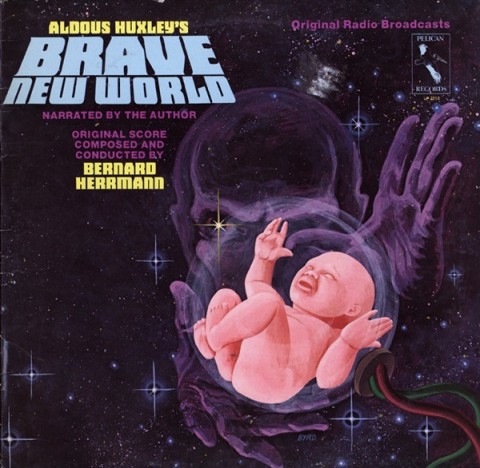
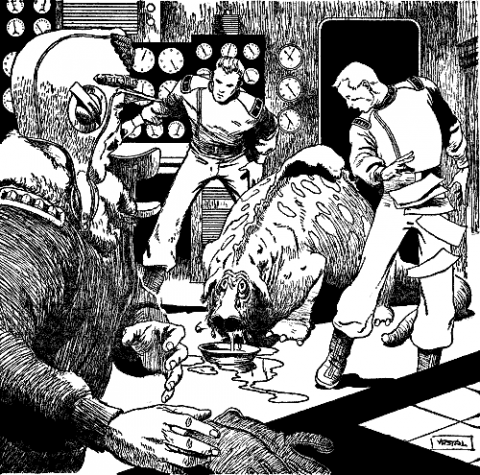
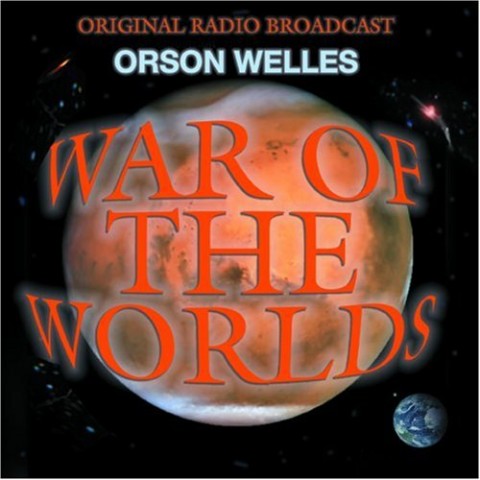

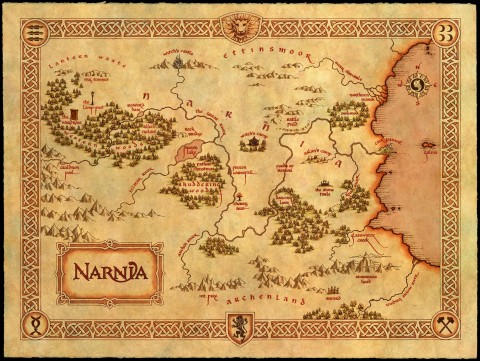
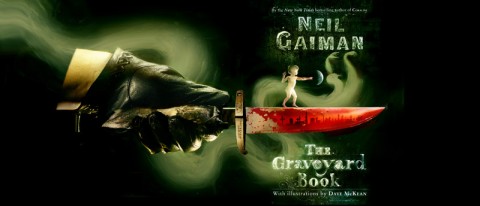
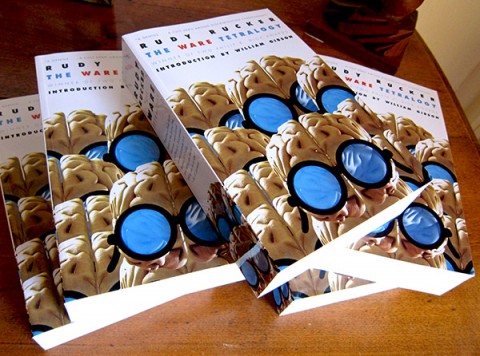


as a scientist and scifi freak, I was glad to see you collection of classic SciFi ebooks!! How about “John Carter of Mars” books from Edgar Rice Burroughs…now that the film has revived insterest??
frontier sciences group
Copenhagen
Beauty. The Foundation series has been continued, by the way, and there are a number of great novels released since we lost the mighty Asimov.
Scott, Most of ER Burroughs is at Gutenberg.org including the Mars/Venus/Moon series.
Close Encounters of the 3rd Kind used to be available for free TV…is it still around anywhere?
yesterday, I watched Soylent Green free online at another site. the scoops are coming! the scoops are coming!
anyone see Logan’s Run anywhere about?
Scott, If you want audio versions of ERB’s Mars books, many are available at librivox.org though some of their (amateur) readers are better than others.
what i write .….….….….….…
Where is Larry Niven? To me he stands among the great sci-fi writers.
Did I miss AC Clark?
Thanks, I think I will start reading again after some 20 years.
ER Burroughs books are dumb…I like REAL Sci-Fi!
Robert Silverberg deserves mention. His Downward to the Earth novel is a science fiction masterpiece.
No Marion Zimmer Bradley?
I’ve found that the best data subject, thank you http://www.autocadkursu.co/ http://www.autocadkursu.co/autocad-ozel-ders.html
I always thought that the scoops in “Soylent Green” were silly. They should have used the “flying wire” from the source book, “Make Room, Make Room.”
What no Bester?
I didn’t many of my favorite’s Ellison, Spinad,R. A. Heinlein, Roger Zelazny John Brunner Frank Herbert I’ll stop here but this list could be much longer…A good start though I’ll be checking back often.
don’t forget Clifford Simak, C.M. Kornbluth, and the great Kuttner & Moore! also, John Wyndham, Ward Moore, Bester, Sprague de Camp — oh, heck, a lot of the best SF ever written is on my blog, Prescience. i have to warn you, though, i go in for the speculative fiction, the why? and what if? type of stories. but you’ll see some real classics, including novels like The Space Merchants and Lest Darkness Fall!
What about the unsung Stanislaw Lem? Surely one of the greatest.
Sir Arthur C. Clarke was or IS as big as Asimov or anyone, along with Larry Niven, Stanislaw Lem, Frank Herbert, Robert A. Heinlein, Kurt Vonnegut, Jules Verne and many MANY more…
I’m no Master of SF, but I did write a collection of Science Fiction Short Stories called “Ancient Tales from the Distant Future’, available on http://www.amazon.com if you wanna check it out.
Will come back here often! THANKS!!!
It would be great to find some A.E. Van Vogt stories and/or novels on here. I just recently found another copy of Slan to replace the one I lost years ago.
thanks 4 all
I am downloading Foundation right now. This is a fantastic find. I can’t wait to hear it, especially with British accents.
For the Lovecraft enthusiasts, I also recommend the H. P. Podcraft podcast, which goes into the Lovecraft stories one by one:
http://hppodcraft.com/
Entertaining, intelligent and very dedicated, this is an excellent audio companion to the Lovecraft MP3s.
Does anyone know if ‘Forbidden Planet’ can be watched for free OR pay anywhere?
Van Vogt. Weapon Shops of Isher.
Bester Demolished Man and The Stars My Destination
Must-reads
Pauline Ashwell, “Unwillingly to Earth.” Delightful.
I can never read a book on a computer or kindle, etc, certainly not a phone.
How about some of the old E.E.‘Doc’ Smith Lensman or Skylark stories. Still enjoyable after all these years.
Marion Zimmer Bradley works can be found at the following URL:
http://www.gutenberg.org/ebooks/author/8842
Love the site!!!
FYI: Most of the (non-appearing) greats, like Asimov, Norton, Bradley, Van Voght, et al, still hold copyright (or their estates do.…) You can try checking st the various non-US Gutenbergs, like Canada or Australia. Copyright laws vary according to country,
Good hunting!
All out-of-copyright fiction classics and early works of historical SciFi interest that are free on Amazon are linked (alphabetically by author) at:
http://www.ifitbreaks.com/free.htm
Note, the list is for Amazon US. Different copyright laws in other countries mean that some of the books, especially the pulp fiction from the 50’s and 60’s, may not be available.
Do you guys offer free classes in sci-fi? I saw a post on Facebook, and I’m looking for how to sign up. Thanks.
Kornbluth and Pohl belong here too with their vision of Corporations running the world, the dystopia we are seeing grow daily before our eyes.
Heinlein
Interesting list. Good start. There´s a lot of great stuff out there. I have a FB page called “Classic Science Fiction Stories”..feel free to check it out.